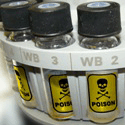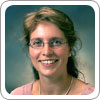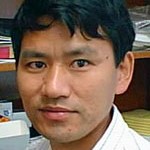The Analytical Research Forum was held at Loughborough University this year. We were in excellent company, as we were sharing the campus with many young teams from numerous sports on training camps, and in particular the World Rope-Skipping Championships!
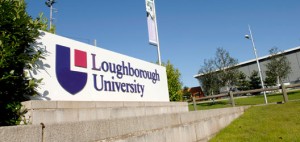 The keynote speakers included Gary Eiceman from New Mexico State University, US who gave a fascinating talk on the possibilites of ion-mobilty mass spectrometry, and some thoughts on what the future holds for this technique. Read one of recent articles in Analyst.
The keynote speakers included Gary Eiceman from New Mexico State University, US who gave a fascinating talk on the possibilites of ion-mobilty mass spectrometry, and some thoughts on what the future holds for this technique. Read one of recent articles in Analyst.
Ion mobility mass spectrometry (IM-MS) became a bit of theme with further discussion from Perdita Barran on the use of nano-electrospray ionisation mass spectrometry and IM-MS for examining biological systems in the gas phase.
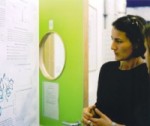 Perdita was also presented with the 2009 Joseph Black award for her developments in the field of mass spectrometry, especially ion-mobility techniques, and the application of these techniques to biological macromolecules and their gas phase interactions.
Perdita was also presented with the 2009 Joseph Black award for her developments in the field of mass spectrometry, especially ion-mobility techniques, and the application of these techniques to biological macromolecules and their gas phase interactions.
Look out for the Emerging Investigators Issue in Analyst early next year, which Perdita is co-Guest Editing with Christy Haynes.
Fingerprinting and forensics was another popular theme of the conference, with a very impressive keynote from David Russell from the University of East Anglia. He updated delegates on the methods his group have developed to detect drugs and metabolites on fingerprints. The method of combining magnetic microparticles or gold nanoparticles with antibodies is so powerful, you can expect to see this approach in use in the near future – drug-drivers beware! Read his article on these methods in Analyst.
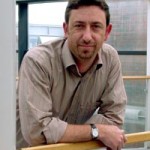 Analytical Methods Editor-in-Chief, Brett Paull gave the final keynote talk on the Wednesday morning, on the topic of monolithic materials for separation science.
Analytical Methods Editor-in-Chief, Brett Paull gave the final keynote talk on the Wednesday morning, on the topic of monolithic materials for separation science.
Other talks which were also impressive included “Ion mobility-mass spectrometry of 3-D supramolecular architectures” by Martin De Cecco from the University of Edinburgh and “Spatially standardized cell biology” by Jonathan West from ISAS, Dortmund, Germany.
The social and networking side of ARF is however just as important as the science, and there were plenty of opportunities for this too. The quiz held in the bar on the Monday night required a combination of largely musical knowledge with a small amount of chemistry! This was most abely won by Perdita Barran’s group from the University of Edinburgh. The conference dinner was also traditionally held on the Tuesday evening.


